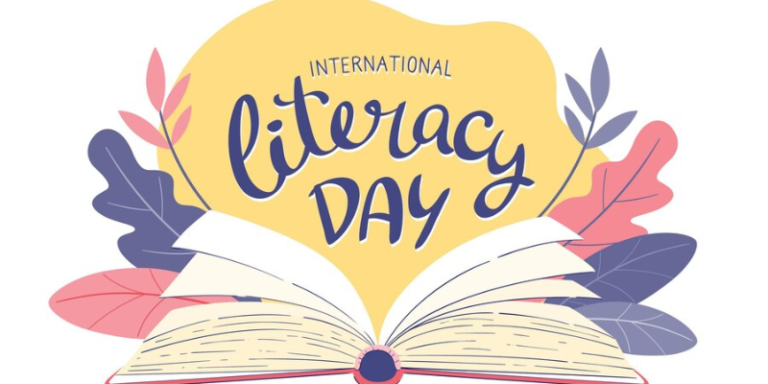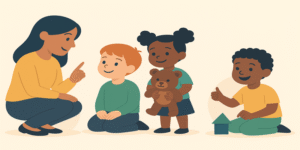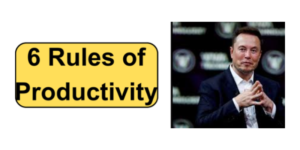International Literacy Day, celebrated annually on 8th September, was established by UNESCO in 1967 to raise awareness about the importance of literacy as a matter of dignity and human rights. Literacy is not merely about reading and writing; it is a fundamental skill that empowers individuals to achieve personal and societal progress. In today’s fast-changing world, literacy is essential for engaging in the global economy, reducing poverty, and ensuring inclusive and equitable quality education for all.
1.0 The Importance of Literacy in Society
Literacy serves as the foundation for lifelong learning and is integral to the development of society. As noted by Freire (1972), literacy is not just about learning words but understanding and shaping one’s reality. In a knowledge-based economy, literacy has become crucial for personal empowerment and participation in the social, economic, and political spheres (UNESCO, 2017). A literate population is better equipped to face the challenges of a globalised world, where communication and access to information are key to success.
According to the World Bank (2019), literacy directly impacts employment opportunities, economic growth, and poverty reduction. Literate individuals are more likely to find jobs, understand health information, and participate in the political process. The ability to read and write empowers individuals to make informed decisions, access legal rights, and understand their role in society. This is particularly relevant in developing countries, where literacy can break the cycle of poverty and promote gender equality (Jones & Thomas, 2020).
2.0 The Global Literacy Crisis
Despite the critical role that literacy plays, millions of people worldwide still lack basic reading and writing skills. According to UNESCO (2021), approximately 773 million adults globally remain illiterate, two-thirds of whom are women. This gender gap highlights the intersection of literacy with broader social issues, such as gender inequality and discrimination.
Moreover, the COVID-19 pandemic exacerbated the global literacy crisis. School closures and limited access to remote learning resources caused significant disruptions in education, especially in low-income countries. UNICEF (2021) reported that at least 463 million children worldwide could not access remote learning during the pandemic, putting them at risk of falling behind in literacy skills.
In addition to these structural challenges, digital literacy has become increasingly important in today’s world. The rise of technology and the internet has transformed literacy beyond the traditional ability to read and write, expanding it to include navigating digital platforms and critically assessing online information (Livingstone, 2019). Therefore, literacy initiatives must now consider both traditional and digital literacy to meet the needs of the 21st century.
3.0 Literacy as a Human Right
Literacy is not just an educational issue; it is a fundamental human right. Article 26 of the Universal Declaration of Human Rights (1948) asserts the right to education for all individuals. This right is further enshrined in the United Nations Sustainable Development Goal 4 (SDG4), which aims to “ensure inclusive and equitable quality education and promote lifelong learning opportunities for all” by 2030 (UN, 2015).
International Literacy Day serves as a reminder of the international community’s commitment to SDG4 and the ongoing efforts to ensure that literacy becomes a reality for all. Governments, non-governmental organisations, and civil society groups worldwide are working to implement literacy programmes that focus on marginalised and vulnerable groups, such as women, refugees, and indigenous populations (World Literacy Foundation, 2021).
4.0 Efforts to Improve Literacy
Various initiatives have been undertaken globally to address literacy challenges. For instance, UNESCO’s Global Education Monitoring Report (2021) provides data and insights on literacy trends, emphasising the importance of equitable access to quality education. Moreover, programmes like “Education for All” aim to improve access to basic education, especially in underprivileged regions (UNESCO, 2021).
At a national level, countries have implemented policies to improve literacy rates by making primary education compulsory, investing in teacher training, and providing learning resources in local languages. For example, in India, the National Literacy Mission Authority has focused on adult education and skill development to reduce illiteracy rates among rural populations (Ministry of Education, India, 2020). Similarly, the UK’s National Literacy Trust works to improve literacy skills among disadvantaged communities through targeted interventions (National Literacy Trust, 2021).
International Literacy Day highlights the pivotal role of literacy in personal and societal development. While significant progress has been made in recent decades, millions of people, particularly women and marginalised groups, continue to face barriers to literacy. Governments, organisations, and educators must work together to address these challenges by promoting inclusive, equitable, and quality education for all. Literacy is a critical tool for social empowerment, economic development, and the achievement of global human rights.
References
Freire, P. (1972) Pedagogy of the Oppressed. London: Penguin Books.
Jones, T. & Thomas, H. (2020) “Literacy, Poverty, and Development: A Global Perspective”. Journal of Education and Development. 45(2), pp. 123-136.
Livingstone, S. (2019) “The Changing Nature of Literacy in the Digital Age”. Journal of Media Literacy Education. 11(1), pp. 1-10.
Ministry of Education, India (2020) National Literacy Mission Authority: An Overview. [Online]. Available at: https://www.education.gov.in/nlma. [Accessed on 8 September 2024].
National Literacy Trust (2021) “Our Mission and Impact”. [Online]. Available at: https://literacytrust.org.uk/about-us/our-mission. [Accessed on 8 September 2024].
UNESCO (2017) Reading the Past, Writing the Future: Fifty Years of Promoting Literacy. Paris: UNESCO Publishing.
UNESCO (2021) Global Education Monitoring Report 2021. Paris: UNESCO Publishing.
UNICEF (2021) “COVID-19 and School Closures: One Year of Education Disruption”. [Online] Available at: https://www.unicef.org/reports/covid-19-and-school-closures. [Accessed on 8 September 2024].
World Bank (2019) “Education and Literacy Statistics”. [Online]. Available at: https://www.worldbank.org/en/topic/education. [Accessed on 8 September 2024].
World Literacy Foundation (2021) “Global Literacy Statistics”. [Online]. Available at: https://www.worldliteracyfoundation.org. [Accessed on 8 September 2024].









